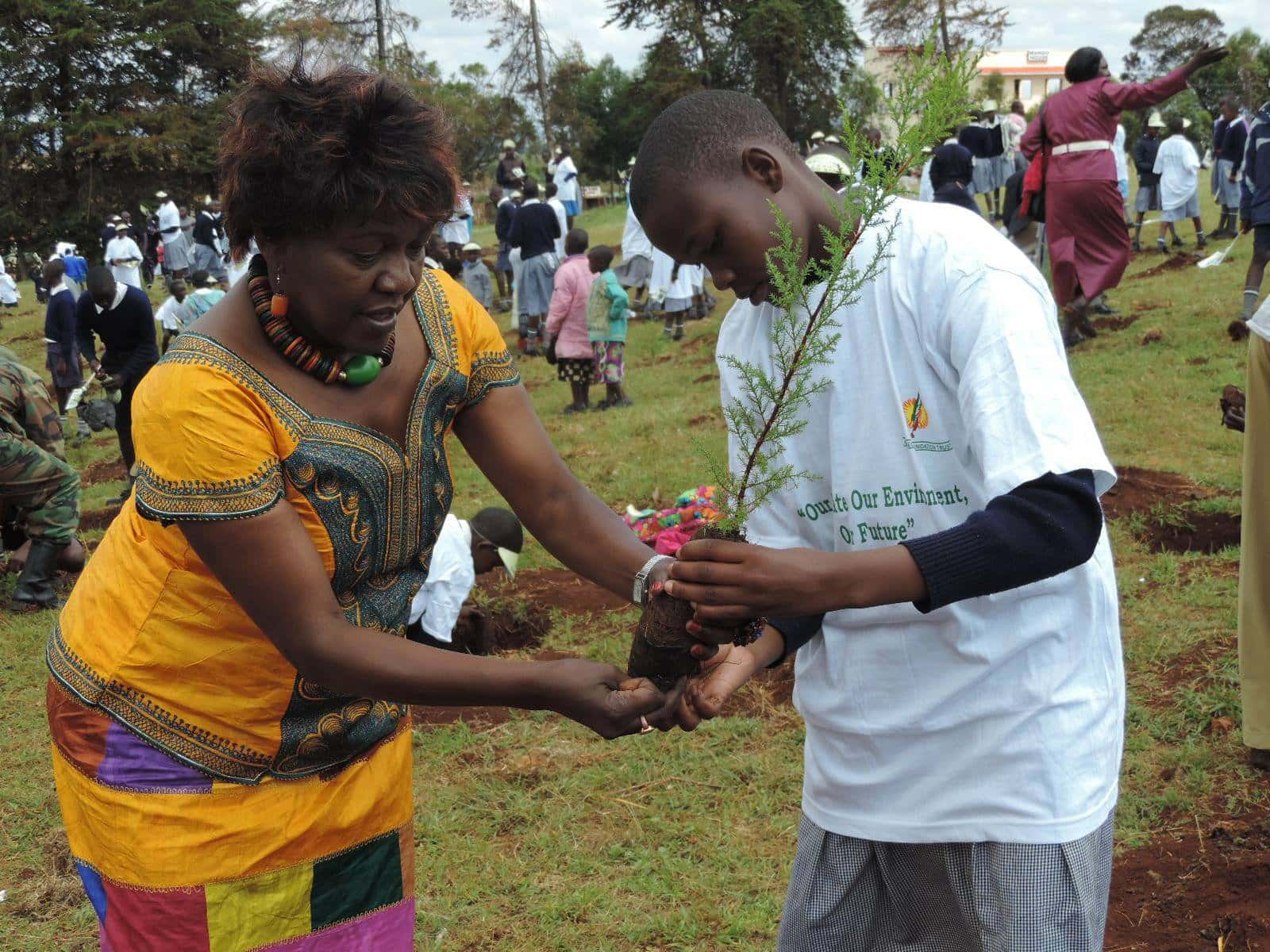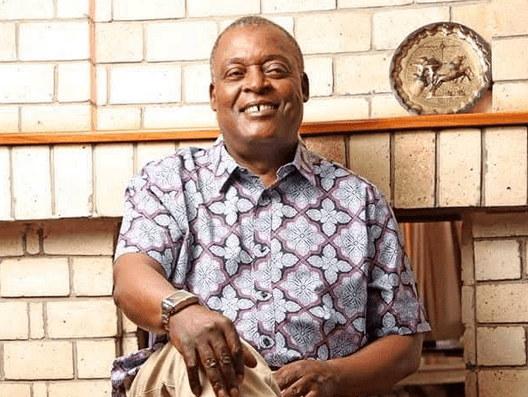
 KOEE CEO and UNESCO chair at the Kenyatta University Dr Dorcas Otieno demonstrates to a learner on how to plant trees at JJ McCarthy Centre in Nairobi on November 21, 2025. /GEORGE OWITI
KOEE CEO and UNESCO chair at the Kenyatta University Dr Dorcas Otieno demonstrates to a learner on how to plant trees at JJ McCarthy Centre in Nairobi on November 21, 2025. /GEORGE OWITIThe teachers drawn from 50 primary and secondary schools
in Nairobi, Kiambu, Machakos, Kakamega, and Homa Bay benefited from the
training conducted in Nairobi.
The training was conducted by the Kenya Organization for Environmental Education (KOEE) under the African Regional Resilience Initiative on Climate Change Education (ARRICE) between November 20 and 21.
It was also
attended by other stakeholders in the education sector, including Office of
Climate Change, Siemens Stiftung, 20 student teachers and learners.
KOEE CEO and UNESCO chair at the Kenyatta University Dr Dorcas Otieno said the initiative strengthens Kenya’s leadership in climate
change education and as well equips schools to become centres of innovation,
resilience and practical action.
“This training isn’t just about knowledge – it’s about
action. We are equipping teachers and learners with the tools to innovate, save
costs, create livelihoods, and build communities that are resilient in the face
of climate change,” Otieno said.
She addressed the press shortly after the training was
concluded at JJ McCarthy Center on Friday.
Otieno said education has the power to transform lives,
schools, and the nation.
Through intensive training, teachers explored hands-on,
inquiry-based approaches to climate education that integrates environmental
science, social responsibility and practical skills.
Beyond enhancing student learning, the programme
demonstrates how environmental activities can support schools in cost-cutting
measures such as school gardens, waste recycling and energy-saving
intitiatives, while also creating opportunities for income generation and local
entrepreneurship.
ARRICE empowers teachers and students to transform their
schools into hubs of creativity, sustainability and community impact.
Otieno said for over three decades, KOEE has led environmental education and education for sustainable development initiatives,
aligning with the government’s vision for a sustainable, resilient and green
economy.
Through ARRICE, KOEE continues to demonstrate how education can be a catalyst for climate action, youth empowerment and community transformation.
KOEE, established in 1997, is Kenya’s leading institution advancing environmental education and education for sustainable development.
KOEE works
nationally and regionally to promote environmental stewardship, climate
resilience, innovation and practical solutions.
As host of the UNESCO Chair on ESD and Earth Charter at
Kenyatta University, KOEE continues to shape education that empowers learners
to act for sustainable development and community transformation.
ARRICE is an ambitious four-year project (2025–2028) focused on
advancing quality Climate Change Education (CCE) across three African
countries: Kenya, Senegal and Mauritius.
It is implemented by the Office for Climate Education
(OCE) who acts as the leading partner, in collaboration with local partners
from targeted countries: KOEE (Kenya), ENDA Énergie (Sénégal) as well as
Mauritius Institute of Education (MIE) and Reef Conservation (Mauritius
Island).
This pilot project is funded by the French Global
Environment Facility (FFEM). It also receives co-financing from Siemens
Stiftung, the Prince Albert II of Monaco Foundation, and ADEME.


















